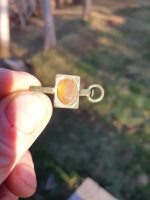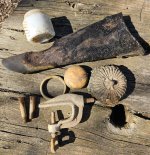I noticed there is a forum on legal issues but decided this forum is more appropriate. The legal issues forum contains only posts from persons using metal detectors. It is very hard to find info on PA surface collecting laws.
Pennsylvania allows public use of navigable waterways as long as you remain within the high water mark These navigable waterways include the Ohio River, Allegheny River, Monongahela River, Youghiogheny River, and many other rivers and smaller waterways. Landowners do not own property below the high water mark on navigable waterways. Is it legal to search artifacts below the high water mark on navigable waterways since it is public property?
I don’t want to waste time searching places that are illegal because I don’t want to risk losing my collection.
Pennsylvania allows public use of navigable waterways as long as you remain within the high water mark These navigable waterways include the Ohio River, Allegheny River, Monongahela River, Youghiogheny River, and many other rivers and smaller waterways. Landowners do not own property below the high water mark on navigable waterways. Is it legal to search artifacts below the high water mark on navigable waterways since it is public property?
I don’t want to waste time searching places that are illegal because I don’t want to risk losing my collection.
Amazon Forum Fav 👍
Upvote
0




 )
) All creeks are off limits because they are private property in all states. Which means you must have the OK from owner. Best to stay off the rivers and hunt private property with permission(written is best). Best to have permission to do anything on private land.
All creeks are off limits because they are private property in all states. Which means you must have the OK from owner. Best to stay off the rivers and hunt private property with permission(written is best). Best to have permission to do anything on private land.  Happy Huntin'
Happy Huntin'



